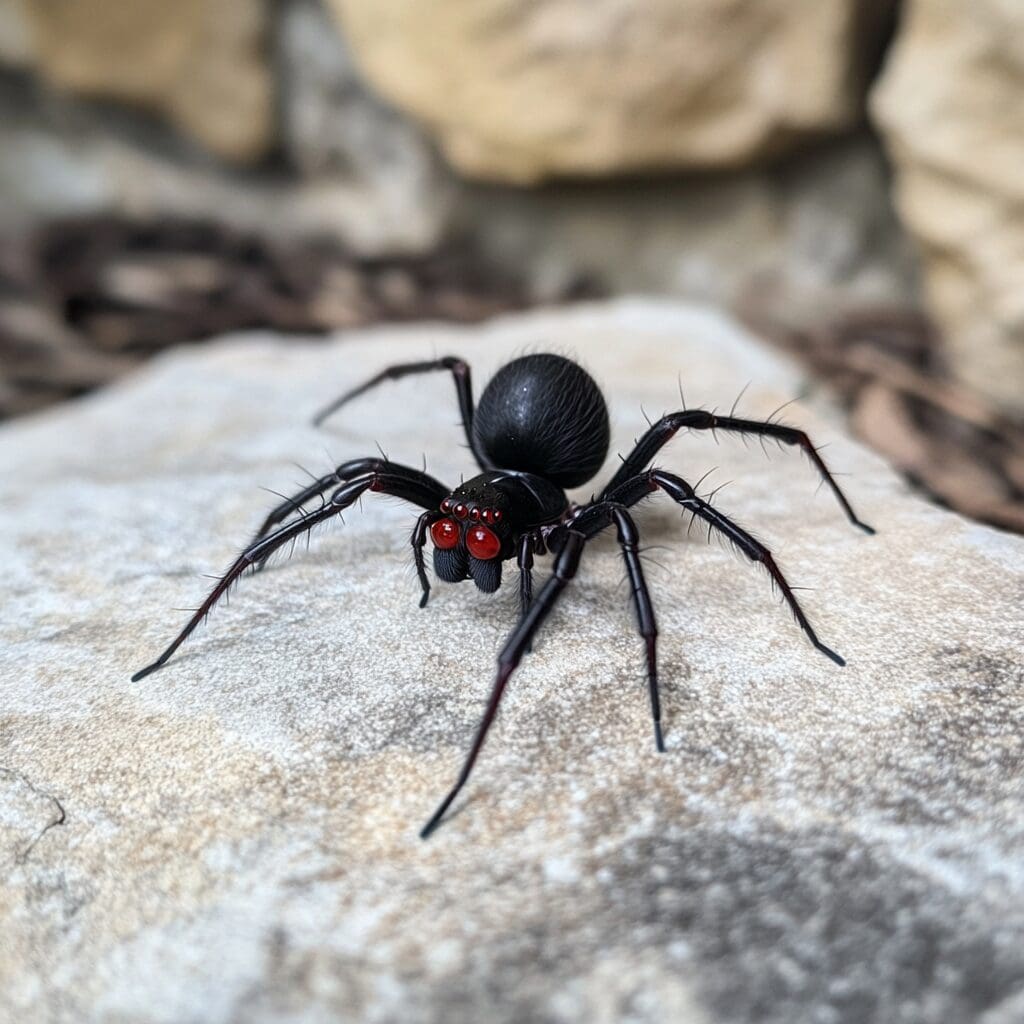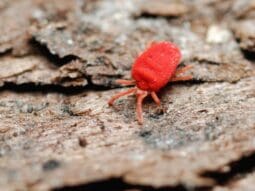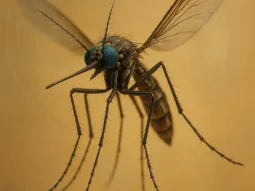
As the seasons change in the Southern United States, we often deal with unwelcome eight-legged intruders in our homes. Spiders can be a persistent problem, but with the right approach, we can keep them at bay. At Romex Pest Control, we've developed effective strategies for seasonal spider management tailored to our region's unique climate and spider species.
We understand that controlling spiders isn't just about eliminating them; it's about creating an environment that's less inviting to these arachnids. Our expert tips focus on both prevention and treatment, ensuring year-round protection for your home. Whether you're dealing with harmless house spiders or more concerning species, we'll show you how to tackle the issue head-on with proven methods from the professionals at Romex Pest.
Understanding Seasonal Spider Behavior in the Southern US
In the Southern US, spider behavior shifts with the changing seasons, influencing their activity and habitat preferences. During spring and summer, spiders become more active, building webs and reproducing. As temperatures rise, they seek cooler spots inside homes, often entering through small cracks and crevices.
Fall brings a surge in spider activity as they prepare for winter. Many species mate during this time, leading to increased sightings indoors. Some spiders, like the brown recluse, become more prevalent in fall as they search for warm, secluded spaces to overwinter.
Winter doesn't mean spiders disappear entirely. While outdoor activity decreases, indoor infestations can persist. Spiders that have found their way inside during warmer months often remain active in heated environments.
Common spider species in the Southern US include:
- Brown recluse: Active year-round, peaks in fall
- Black widow: Most active in summer and early fall
- Wolf spiders: Increase indoor presence in fall and winter
- House spiders: Present year-round, more noticeable in summer and fall
Understanding these seasonal patterns is crucial for effective spider control. By anticipating when different species are most active, we can implement targeted prevention and treatment strategies throughout the year.
Common Spider Species in Southern States
In the Southern United States, we encounter several spider species that pose unique challenges for pest control. Our expertise at Romex Pest Control allows us to identify and manage these common arachnids effectively:
Brown Recluse
- Identifiable by violin-shaped marking on cephalothorax
- Prefers dark, undisturbed areas like closets and attics
- Active year-round in indoor environments
- Venom can cause necrotic lesions
Black Widow
- Glossy black with distinctive red hourglass on abdomen
- Constructs irregular webs in low-traffic areas
- Most active during warmer months
- Neurotoxic venom requires immediate medical attention
Wolf Spiders
- Large, hairy spiders with keen eyesight
- Ground-dwelling hunters, often found in gardens and basements
- More visible in late summer and early fall
- Non-aggressive but may bite if threatened
House Spiders
- Various species with diverse appearances
- Commonly found in corners and windowsills
- Present year-round but more noticeable in fall
- Generally harmless to humans
- Create large, circular webs in gardens and near outdoor lights
- Most active in late summer and early fall
- Beneficial for insect control but can be a nuisance
Understanding these species' behaviors and habitats is crucial for implementing targeted control measures. Our Romex Pest Control strategies address each species' unique characteristics to ensure effective management throughout the Southern states.
Spring: Preparing for Increased Spider Activity
As temperatures rise in the Southern US, spider activity intensifies. We'll explore effective strategies to manage this seasonal surge and maintain a spider-free environment.
Preventative Measures for Spring
Spring cleaning isn't just for decluttering; it's a crucial step in spider control. We recommend thoroughly cleaning your home, paying special attention to dark corners, closets, and basements. Remove cobwebs, vacuum regularly, and declutter to eliminate potential spider habitats.
Seal entry points around windows, doors, and foundations to prevent spiders from entering. Use caulk or weatherstripping to close gaps and cracks. Install door sweeps and repair damaged screens to create a barrier against spider intrusion.
Reduce outdoor lighting near entrances, as it attracts insects that spiders prey on. Switch to yellow "bug lights" or sodium vapor lamps to minimize insect attraction. Keep vegetation trimmed away from your home's exterior to limit spider access points.
Implement a regular pest control schedule with Romex Pest Control. Our targeted treatments focus on common spider entry points and habitats, providing long-lasting protection against spring spider infestations.
Summer: Peak Spider Season
Summer marks the height of spider activity in the Southern US. As temperatures rise, spiders become more active and visible, making it crucial to implement effective control measures.
Effective Control Strategies for Summer
During summer, we recommend focusing on these key strategies to manage spider populations:
- Seal entry points: Inspect and seal cracks, gaps, and openings around windows, doors, and foundations to prevent spiders from entering.
- Reduce clutter: Clear out storage areas, attics, and basements to eliminate potential spider habitats.
- Maintain landscaping: Trim vegetation away from your home's exterior to reduce spider access points.
- Use targeted treatments: Apply spider-specific insecticides around the perimeter of your home and in known problem areas.
- Install screens: Ensure all windows and doors have properly fitted screens to prevent spider entry.
- Remove webs regularly: Use a broom or vacuum to remove spider webs from both interior and exterior surfaces.
- Implement natural repellents: Place cedar blocks or use peppermint oil in areas prone to spider activity.
- Manage outdoor lighting: Use yellow or sodium vapor lights to reduce attracting insects that spiders prey on.
- Schedule professional treatments: Arrange for regular pest control services to maintain a spider-free environment throughout the summer.
By implementing these strategies, homeowners can effectively manage spider populations during the peak summer season in the Southern US.
Fall: Spiders Seeking Indoor Shelter
As temperatures drop in the Southern US, spiders begin seeking warmer environments, often leading them into our homes. We'll explore effective strategies to prevent and manage spider intrusions during this crucial season.
Autumn Prevention and Protection Tips
To keep spiders at bay during fall, we recommend:
- Sealing entry points: Inspect and seal cracks, gaps, and holes around windows, doors, and foundations.
- Decluttering: Remove piles of leaves, wood, and debris near your home's exterior.
- Reducing moisture: Fix leaky pipes and ensure proper drainage to eliminate damp areas.
- Installing door sweeps: Prevent spiders from crawling under doors with tight-fitting sweeps.
- Using natural repellents: Apply peppermint oil or vinegar solutions around potential entry points.
- Maintaining yard: Trim bushes and trees away from your home's exterior.
- Storing firewood properly: Keep woodpiles at least 20 feet away from the house.
- Utilizing outdoor lighting: Switch to yellow "bug lights" to attract fewer insects and spiders.
- Scheduling professional treatments: Arrange for Romex Pest Control's targeted fall treatments.
By implementing these measures, we'll significantly reduce the likelihood of spiders seeking shelter in our homes during the cooler autumn months.
Winter: Dealing with Overwintering Spiders
Winter in the Southern US brings unique challenges for spider control. While some spiders become less active, others seek shelter indoors, making proactive management essential. Here's how to effectively deal with overwintering spiders:
- Seal entry points: Inspect and caulk cracks in foundations, walls, and around windows and doors.
- Reduce indoor humidity: Use dehumidifiers in damp areas to make your home less attractive to moisture-loving spiders.
- Declutter regularly: Remove boxes, newspapers, and other potential hiding spots from basements and attics.
- Vacuum frequently: Pay special attention to corners, baseboards, and under furniture to remove spiders and their webs.
- Maintain proper insulation: Ensure your home is well-insulated to prevent spiders from entering through gaps in walls or roofs.
- Use sticky traps: Place these in corners and along walls to capture spiders without chemicals.
- Implement natural deterrents: Use essential oils like peppermint or tea tree in areas where spiders are commonly found.
- Keep outdoor lights off: Minimize the use of exterior lighting that attracts insects, which in turn attract spiders.
- Schedule professional treatments: Regular pest control services from Romex Pest Control can prevent winter spider infestations.
By implementing these techniques, we can effectively manage overwintering spiders and maintain a spider-free environment throughout the winter months in the Southern US.
Year-Round Spider Control Methods
At Romex Pest Control, we implement comprehensive strategies to manage spider populations in Southern US homes throughout the year. Our approach combines natural solutions with professional treatments to ensure long-lasting results.
Natural and Non-Toxic Solutions
Natural spider control methods offer eco-friendly alternatives to chemical treatments. We recommend:
- Essential oils: Peppermint, eucalyptus, and tea tree oils repel spiders effectively.
- Vinegar spray: A solution of equal parts water and white vinegar deters spiders from entering homes.
- Diatomaceous earth: This natural powder damages spiders' exoskeletons, preventing infestations.
- Cedar blocks: Placing cedar blocks in closets and drawers naturally repels spiders.
- Regular cleaning: Vacuuming and dusting remove spider webs and egg sacs, disrupting their life cycle.
- Targeted insecticide application: We use low-toxicity products in spider-prone areas.
- Perimeter treatments: Regular applications around the home's exterior create a barrier against spiders.
- Web removal services: Our technicians eliminate existing webs and monitor for new activity.
- Crack and crevice treatments: We apply long-lasting residual products in potential spider entry points.
- Integrated Pest Management (IPM): Our approach combines habitat modification, exclusion techniques, and targeted treatments for comprehensive control.
Creating a Spider-Unfriendly Environment
We'll explore effective strategies to make your home less inviting to spiders. By implementing these techniques, you'll significantly reduce the likelihood of spider infestations in your Southern US residence.
Sealing Entry Points
Sealing entry points is crucial for spider prevention. We recommend inspecting your home's exterior for cracks, gaps, and holes, paying special attention to areas around windows, doors, and utility lines. Use caulk or weatherstripping to seal smaller openings, and repair or replace damaged screens on windows and doors. For larger gaps, consider using expandable foam or steel wool. Don't forget to check the foundation and roof for potential entry points, as spiders can access your home through even the tiniest openings.
Reducing Clutter and Moisture
Clutter and moisture create ideal habitats for spiders. We suggest decluttering regularly, focusing on basements, attics, and garages where spiders often hide. Store items in sealed plastic containers rather than cardboard boxes, which attract both spiders and their prey. To reduce moisture, fix leaky pipes, use dehumidifiers in damp areas, and ensure proper ventilation in bathrooms and kitchens. Maintain gutters and downspouts to prevent water accumulation near your home's foundation. By minimizing clutter and controlling moisture, you'll create an environment that's less appealing to spiders and their prey.
When to Seek Professional Pest Control Services - Romex Pest Control
While many spider control methods can be implemented by homeowners, there are situations where professional pest control services become necessary. We at Romex Pest Control recommend seeking expert assistance in the following scenarios:
Severe Infestations
When spider populations exceed manageable levels, professional intervention is crucial. Signs of severe infestations include:
- Numerous webs in multiple areas of the home
- Frequent spider sightings indoors
- Large clusters of egg sacs
Our team at Romex Pest Control uses advanced techniques and products to effectively reduce spider populations and prevent future infestations.
Presence of Dangerous Species
The Southern US is home to venomous spiders like the Brown Recluse and Black Widow. If you've identified these species in your home, it's essential to contact Romex Pest Control immediately. We have specialized treatments and safety protocols for handling dangerous spider species.
Recurring Problems
If DIY methods fail to control spider populations over time, it's time to call in the professionals. Romex Pest Control offers comprehensive, long-term solutions that address the root causes of persistent spider problems.
Hard-to-Reach Areas
Spiders often inhabit areas that are difficult or dangerous for homeowners to access, such as:
- Attics
- Crawl spaces
- High ceilings
- Exterior eaves
Our trained technicians at Romex Pest Control have the equipment and expertise to safely treat these challenging areas.
Pre-existing Pest Issues
Spiders are often attracted to homes with existing insect problems. If you're dealing with multiple pest issues, Romex Pest Control can implement an integrated pest management approach to address all concerns simultaneously.
Preventive Maintenance
Proactive homeowners often seek professional services for preventive maintenance. Romex Pest Control offers regular inspection and treatment plans to keep spider populations under control year-round.
By recognizing these situations and contacting Romex Pest Control promptly, Southern US homeowners can effectively manage spider problems and maintain a pest-free environment.
To Summarize
Managing spiders in the Southern US requires a tailored approach that adapts to seasonal changes and local species. We've explored effective strategies for year-round control and identified key situations where professional help is crucial. By staying informed and proactive homeowners can maintain a spider-free environment. Remember Romex Pest Control is here to assist with expert solutions tailored to your specific needs. With the right knowledge and support you can confidently tackle spider issues and enjoy a comfortable pest-free home throughout the year.
We hope you enjoy these informational articles. If you'd like to learn more about our eco-friendly pest control services, call (844) 955-2447.
Read More
Your Path to a Pest-Free Home or Business
Romex Pest Control
We are committed to protecting you, your children, and your pets with our eco-friendly, child-friendly, and pet-friendly guaranteed pest control solutions.
Romex Pest Control is fully insured and licensed in Texas, Oklahoma, Louisiana, and Mississippi.
Service Areas:
Hours
M-F 8 am–5 pm
Sat 8 am–2 pm
Sun Closed
Established 2016 © Copyright 2025 Romex Pest Control










